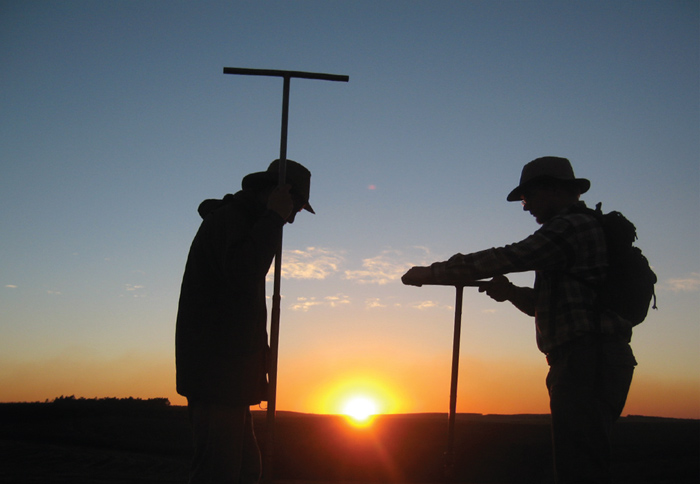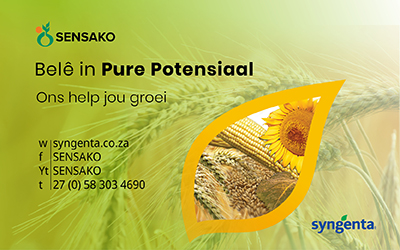The Department of Soil, Crop and Climate Sciences at the University of the Free State is engaged in teaching and learning, academic research and the provision of community services in the soil-plant-atmosphere continuum. Our teaching and research have a strong practical orientation, which makes us stand out.
Through the applied nature of our work, the department aims to advance the agricultural sector in South Africa and beyond, while protecting our natural resources. The department has a rich history and has made important contributions to this field in the past.
Soil science is the study of soils as a natural resource. The origin, classification, geographical distribution and utilisation of soils in natural, agricultural and urban environments are studied. The functions of soils are based on the interactions between soil chemistry, soil physics and soil biology. This knowledge is applied to promote sustainable plant production and to combat the degradation of soils and the wider environment.
Crop production deals with the cultivation of plants for food, fuel, feed and fibre under both rainfed and irrigated conditions. Agronomists and horticulturists study the soil and climatic requirements of crops and trees as well as production aspects such as planting time, propagation and cultivation techniques, cultivar choice, plant nutrition, weed and pest control, and the effect of environmental stress on plant physiology and yields.
Agrometeorology investigates the impact of weather and climate on crops, trees, grasslands and livestock production systems. With climate change increasingly becoming the key driver of agricultural systems, the transfer of air, water and heat – as related to biomass development – is studied in agricultural environments. Agrometeorological services, such as early warnings, irrigation scheduling, microclimate manipulation and weather forecasts are developed to cope with a changing and increasingly variable climate.
Our department offers three types of undergraduate degrees, namely a Bachelor of Agriculture, a Bachelor of Science in Agriculture and a Bachelor of Science.
Bachelor of Agriculture (BAgric)
The objective of the BAgric programme is to train students to apply agricultural knowledge on farms or in organisations and companies active in the agricultural field. This practical degree provides knowledge and skills on resource utilisation, agricultural production, processing, management and communication.
This three-year programme comes with the following options: Crop production management, irrigation management (with agricultural engineering), agricultural management, animal production management, agricultural extension, mixed farming management and wildlife management. Students with a BAgric degree may continue with a Bachelor of Agriculture Honours in irrigation management, agricultural management, wildlife management or animal production management.

Bachelor of Science in Agriculture (BScAgric)
The BScAgric is a four-year degree. It is more academically oriented than the BAgric, but nevertheless contains a good amount of practical work. The main fields of interest in the department are agrometeorology, soil science and crop production. These so-called majors can be combined with other subjects (minors) such as grassland sciences, agricultural economics, plant breeding, entomology and others, depending on the interest of the student. The exit level of this degree is comparable to a Bachelor of Science Honours.
Bachelor of Science (BSc)
The BSc is a three-year degree with agrometeorology or soil science as the main specialisation, which is again combined with various other subjects. Compared to the BScAgric, the BSc is also a science-oriented degree, but it has less agricultural subjects and more general science subjects such as geography, physics and mathematics. After obtaining the degree, students can continue with a one-year Bachelor of Science Honours specialising in agrometeorology or soil science.
We also offer opportunities for MSc and PhD studies, as well as a structured master’s degree with specialisation in climate change.



















